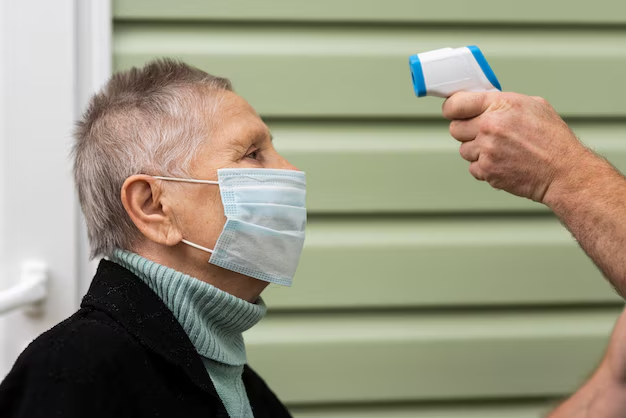Your Guide to How Do You Know If You Have Parkinson's
What You Get:
Free Guide
Free, helpful information about Parkinsons FAQ and related How Do You Know If You Have Parkinson's topics.
Helpful Information
Get clear and easy-to-understand details about How Do You Know If You Have Parkinson's topics and resources.
Personalized Offers
Answer a few optional questions to receive offers or information related to Parkinsons FAQ. The survey is optional and not required to access your free guide.
Understanding Symptoms of Parkinson's: Knowing When to Seek Help
Navigating the early signs of Parkinson's disease can be challenging, as they often mimic symptoms associated with aging. So, how can you tell if you're facing more than just usual wear and tear? Recognizing the potential signs of Parkinson’s early can help you seek timely medical advice, and consequently, a better quality of life. Here’s a closer look at the symptoms and where to turn if you suspect something more.
Key Symptoms of Parkinson's Disease
1. Tremors and Shaking
One of the most recognizable signs of Parkinson’s is a persistent tremor, often starting in a hand or fingers. It is crucial to note that these shakes occur even when the hand is at rest.
2. Slowed Movement (Bradykinesia)
Over time, Parkinson's can slow physical movement, making simple tasks time-consuming and difficult. This might manifest as difficulty getting out of chairs or a noticeable reduction in your stride's length when walking.
3. Muscle Stiffness
Muscle stiffness can occur in any part of the body and may limit your range of motion. This stiffness can be painful and often doesn't subside with movement.
4. Impaired Posture and Balance
If you regularly find yourself unexpectedly losing your balance or stooping, these might be signs of Parkinson’s impacting your posture and balance.
5. Loss of Automatic Movements
Parkinson’s disease can reduce your ability to perform unconscious movements, such as blinking, smiling, or swinging your arms while you walk.
6. Speech and Writing Changes
You may notice your speech becoming softer, quicker, or slurred. Similarly, writing might appear different as it can often become small and cramped.
What to Do If You Suspect Parkinson's
If you observe any of these symptoms, especially in combination, consult your healthcare provider. They may recommend seeing a neurologist, who can evaluate your symptoms more closely, often using a combination of neurological and physical examination.
Remember, only a healthcare professional can diagnose Parkinson’s, usually through the observation of symptoms over time, as there is currently no definitive test for Parkinson's.
Financial Support and Resources
Receiving a diagnosis of Parkinson's disease can lead to concerns about the future, particularly financial and caregiving needs. Fortunately, several resources are available to assist.
- Disability Benefits: You may qualify for Social Security Disability Insurance (SSDI) if your ability to work is impacted.
- Medicare and Medicaid: These programs can assist with medical expenses for eligible individuals.
- State Assistance Programs: Some states offer specific programs for those with Parkinson’s or other neurodegenerative conditions.
- Non-Profit Organizations: Groups like the Parkinson’s Foundation provide support services and financial aid resources.
Navigating Aspects Beyond Healthcare
Once you've considered medical guidance, knowing where to find financial support can alleviate some of the burdens associated with Parkinson's:
| 🏥 Resource | 📝 Details |
|---|---|
| Social Security Disability Insurance (SSDI) | Financial benefits for those unable to work due to medical conditions. |
| Medicare & Medicaid | Government programs covering healthcare costs based on eligibility. |
| Veterans Affairs (VA) Benefits | Specific programs available for military veterans. |
| Parkinson's Foundation & Other Non-profits | Various support services, education, and sometimes financial aid. |
Navigating a Parkinson’s diagnosis requires understanding the signs and seeking timely assistance. From medical consultations to leveraging financial support programs, knowledge is power in transforming a daunting diagnosis into a manageable chapter of life. With the right support, those living with Parkinson’s can maintain their quality of life.
What You Get:
Free Parkinsons FAQ Guide
Free, helpful information about How Do You Know If You Have Parkinson's and related resources.

Helpful Information
Get clear, easy-to-understand details about How Do You Know If You Have Parkinson's topics.

Optional Personalized Offers
Answer a few optional questions to see offers or information related to Parkinsons FAQ. Participation is not required to get your free guide.


Discover More
- Are There Environmental Causes Of Parkinsons
- Can Alcohol Cause Parkinson's
- Can Concussions Cause Parkinson's
- Can Concussions Cause Parkinson's Disease
- Can Dogs Get Parkinson's Disease
- Can Dogs Get Parkinsons
- Can Dogs Have Parkinson's
- Can Dogs Have Parkinson's Disease
- Can Females Get Parkinson Disease
- Can Head Trauma Cause Parkinson's
